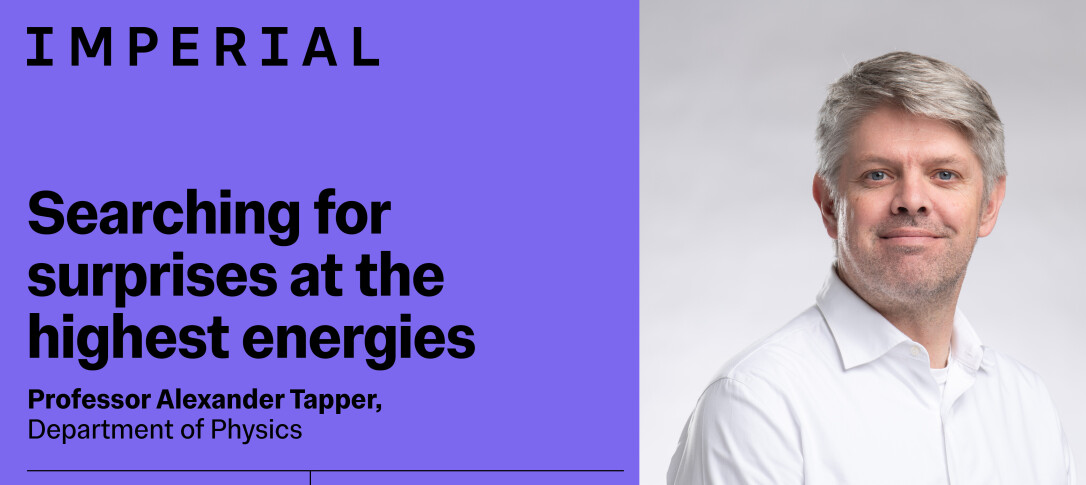
Join Professor Alexander Tapper, online or in person, for his Imperial Inaugural.
We have limited in-person spaces available so please ensure you register in advance.
Join the event on our YouTube channel
Summary
After centuries of study we know that there are two kinds of matter: leptons and quarks, and that there are four forces that mediate their interactions: the electromagnetic, the strong, the weak and the gravitational forces. This knowledge of fundamental particles and the interactions between them forms the standard model of particle physics.
Despite its overwhelming success, the standard model leaves many fascinating questions unanswered. What is the reason for the hierarchy of particle masses we observe? Why do we observe three generations of quarks and leptons? What is the origin of dark matter? And many others.
It’s clear that the standard model cannot be the complete picture, but what would the bigger picture look like? And how can we find out? Answering these questions requires us to build experiments of unprecedented scale and complexity, involving thousands of scientists from across the globe. The technical challenges require new detector technologies and the processing of huge volumes of data in a few millionths of a second.
Alexander Tapper is a Professor of Physics at Imperial College London and has spent much of his career searching for physics beyond the standard model (spoiler alert) without success. In his inaugural lecture he will discuss these searches and the technological challenges inherent in particle physics at the energy frontier.
Biography
After completing his undergraduate studies at the University of Oxford, Professor Tapper joined Imperial College, completing his PhD in 2001. He has worked on particle physics experiments around the world, including at the DESY laboratory in Germany, CERN in Switzerland and Fermilab in the USA.
Professor Tapper specialises in searches for physics beyond the standard model and in developing the experimental technologies which enable such searches, in particular real time data processing systems. Career highlights include leading the search for new physics in the CMS collaboration at CERN and developing microsecond processing systems for physics detectors and beyond. He currently leads the UK-wide project to upgrade the CMS detector into the 2030s.


